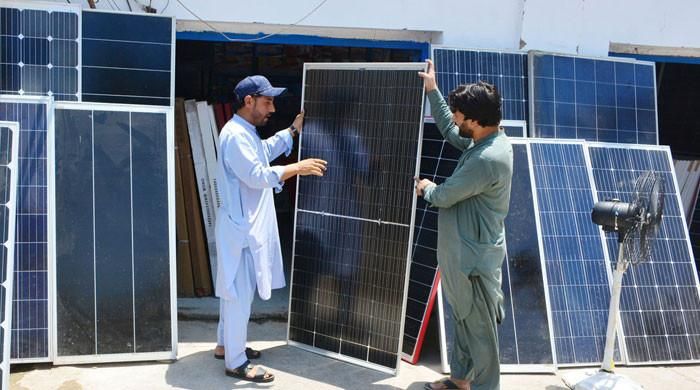As Pakistan's financial managers crunch the numbers to raise woefully low national revenues, rapid policy changes to fill the gap will inevitably cause more harm than good.
Tragically, however, current practice is in line with the ruling establishment's record, where shortcuts to address immediate rot rather than adopting painful and long-delayed reforms remain the norm. Within this framework, the reported plan to force Pakistan's solar energy consumers to reduce the benefits they derive from current and future generation speaks volumes about a broader crisis surrounding the country.
In short, Pakistan's path forward simply will not lead to greater stability around the economy, regardless of the costs imposed on consumers, including those using solar energy.
In recent years, Pakistani electricity consumers have been encouraged to adopt solar generation as a way to increase power generation, using a natural source with no fuel cost. The practice has clearly become popular among a variety of consumers, from high-end urbanites to rural dwellers. The idea of 'net metering', as mentioned repeatedly, encouraged consumers to sell the energy they generated to the national grid, while being billed for the energy consumed in addition to that sold. In many cases, consumers who had surpluses received an electricity credit for future use.
Many consumers adopted the practice with large upfront investments that required a large one-time cost to make a long-term profit. But as solarization grew across Pakistan, power authorities realized the benefit to consumers, with lower electricity purchases due to a fundamentally flawed transmission system.
Burdened with expensive electricity supplied by mainly oil-based independent power producers or IPPs, which came to the fore since the 1990s, Pakistan's power system has effectively become yet another white elephant.
Three failures have devastated Pakistan's power grid: First, the transmission system, armed with reported losses of up to 30%, is inherently inefficient and fraught with governance challenges that must be addressed. However, this should not occur by compromising the interests of solar energy consumers.
Secondly, Pakistan's economic slowdown, with power consumers in industry and agriculture reducing their purchases, hardly helps increase electricity revenues. On the contrary, faster economic growth would have generated more income and possibly allowed more profitable sectors to bear a higher electricity rate than domestic consumers.
Finally, the rush to plug the gaping hole in Pakistan's revenue is fundamentally driven by a continuing national inability to boost the country's all-too-mediocre tax collection. With less than 2% of Pakistan's population already subject to income tax, there is indeed a periodic and clumsy race to slap those who already pay their dues. And it is not surprising that government after government has used indirect taxes to reduce the gap, rather than aggressively going after those who remain virtually immune from paying their dues.
The idea of forcing solar consumers to receive fewer benefits from investments, whether made or in process, must be seen within the framework of a broader national failure.
Changes in the benefits of solarization inherently carry two related risks for Pakistan's future. On the one hand, the changes reported in this sector will demonstrate once again that the incentives offered under a policy in a given year offer no guarantee of remaining in force in the future. Consequently, stakeholders, such as those betting on the benefits of solar energy, simply cannot trust official promises.
On the other hand, one has to wonder about the benefits for large electricity producers who arrived under the PPI policy of the 1990s and who continue to benefit from a regime that is reportedly still favorable to them. Any discussion on this issue deserves a detailed debate on the floor of parliament, with a detailed explanation of any planned justification for reducing the benefits for solar energy users.
Looking ahead, policy shifts back and forth across a range of sectors, including solar energy generation and supply, indeed raise a compelling question about the virtual absence of a centralized focal point for the direction of energy. economy. In the past, the direction of policymaking in Pakistan was simply incomprehensible without central oversight from the National Planning Commission in Islamabad. It is evident that over time Pakistan has moved far away from that era, with even the provinces – particularly Punjab – apparently formulating policies without any reference to a national direction.
This is a tragic change of direction that has, in fact, cost Pakistan dearly. The idea of radical policy changes simply cannot become the basis for powerful, progressive and longer-term economic change. In contrast, policies designed outside the national mainstream carry the powerful risk of a back-and-forth trend like that seen in the solar sector.
The focus must remain on Pakistan's long-term future for the benefit of its majority population, rather than quick fixes without lasting change. In the end, an investment-starved country simply cannot risk policy failure as it seeks a boost for its economic future.
The writer is an Islamabad-based journalist who writes on political and economic affairs.
He can be contacted at: [email protected]
Disclaimer: The views expressed in this article are those of the writer and do not necessarily reflect the editorial policy of Geo.tv.












